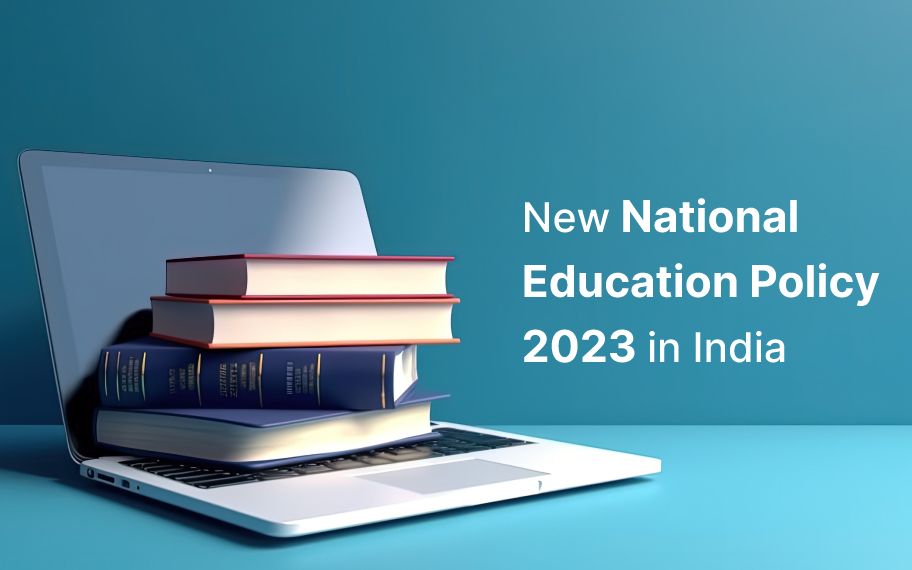Education is the foundation upon which the future of a nation rests. Recognizing the need for a transformative change in the Indian education system, the Indian government introduced the National Education Policy (NEP) 2020 to revolutionize how education is imparted and received. Two years later, in 2023, we witnessed a further leap forward by implementing the National Education Policy 2023. This blog delves into the key highlights and advancements of the NEP 2020, building upon its predecessor, NEP 2020.Prime Minister Modi will preside over the inauguration of the 'Akhil Bhartiya Shiksha Samagam' at ITPO Pragati Maidan, New Delhi on 29th July , commemorating the third anniversary of the National Education Policy (NEP).
Holistic Approach to Learning
The NEP 2020 builds upon the fundamental principles of the NEP 2020, emphasizing a holistic approach to learning. This policy shift recognizes that education should go beyond academic excellence and encompass the development of essential life skills, creativity, critical thinking, and emotional intelligence. Integrating co-curricular activities and vocational training into the mainstream curriculum empowers students with practical knowledge, making them future-ready.
Multilingualism and Cultural Integration:
One of the striking features of the NEP 2020 is the emphasis on multilingualism and cultural integration. Recognizing India's linguistic diversity, the policy encourages schools to adopt a three-language formula, where students would learn their mother tongue, a regional language, and a foreign language. This approach fosters national unity and appreciation for diverse cultures and enhances communication abilities, preparing students for a globalized world.
Digital Transformation in Education:
The NEP 2020 acknowledges the potential of technology in education. It aims to facilitate the integration of digital tools and platforms in classrooms to enhance the learning experience. This digital transformation opens new avenues for interactive and personalized learning, reaching students in remote areas and bridging the urban-rural education divide. The policy also focuses on training teachers in digital pedagogy to ensure effective implementation
.
Emphasis on Research and Innovation:
To foster a culture of innovation and research, the NEP 2020 emphasizes the establishment of research and development centers in educational institutions. This initiative encourages students and teachers to engage in research activities, promoting a deeper understanding of subjects and addressing real-world challenges. Additionally, the policy supports collaborations between academia and industry to bridge the gap between theoretical knowledge and practical application.
Flexible and Modular Education:
The NEP 2020 introduces flexibility in the education system through a modular approach. This allows students to choose from a wide range of subjects and pursue interdisciplinary studies, enabling them to explore their interests and passions. The policy also promotes credit-based transfer systems, enabling seamless mobility between different courses and institutions, making education more accessible and adaptable to individual needs.
Inclusive Education and Special Needs:
In line with the NEP 2020's commitment to inclusive education, the NEP 2020 takes further steps to support students with special needs. The policy advocates the establishment of resource centers equipped with trained professionals to cater to the diverse learning requirements of differently-abled students. The NEP 2020 promotes a society that embraces diversity and inclusivity by ensuring their integration into mainstream education.
Conclusion:
The National Education Policy 2023 marks a significant milestone in the evolution of the Indian education system. Building upon the foundations laid by NEP 2020, this policy showcases the government's commitment to creating an inclusive, technologically advanced, and globally competitive educational landscape. By prioritizing holistic development, multilingualism, digital transformation, research, and flexibility, the NEP 2020 paves the way for a brighter and more promising future for the youth of India. As the policy takes root and implementation begins, it is essential for all stakeholders - policymakers, educators, students, and parents - to collaborate and work cohesively to realize the vision of a transformed education system in India.
Learn more about Teachmint plans here.






